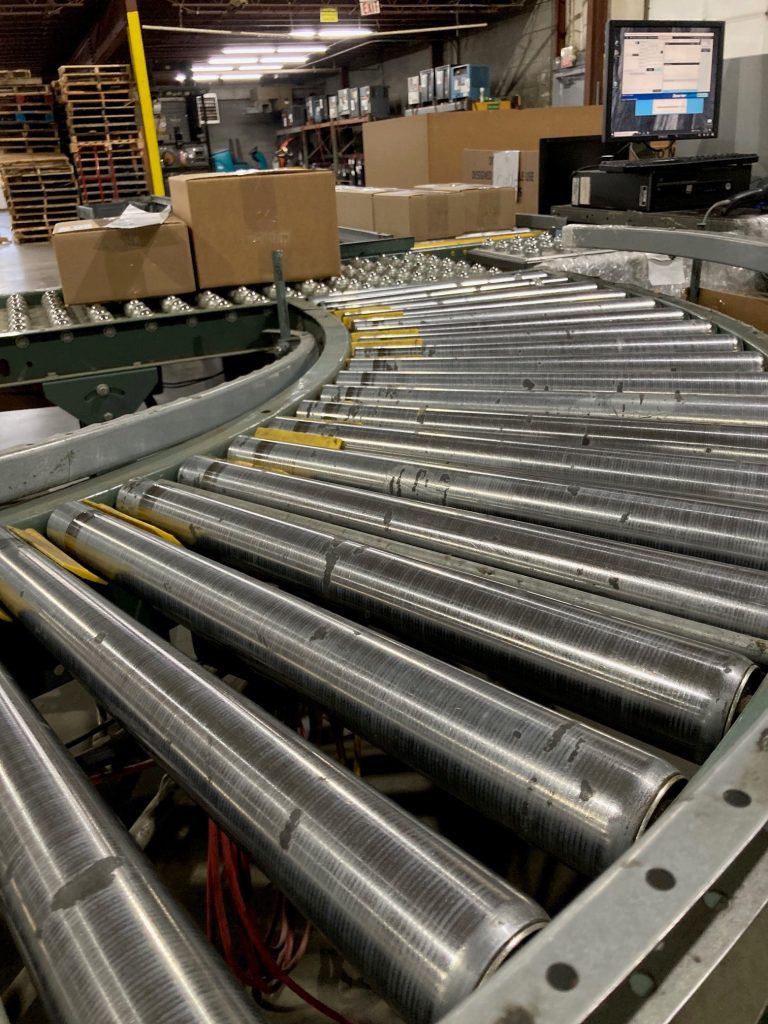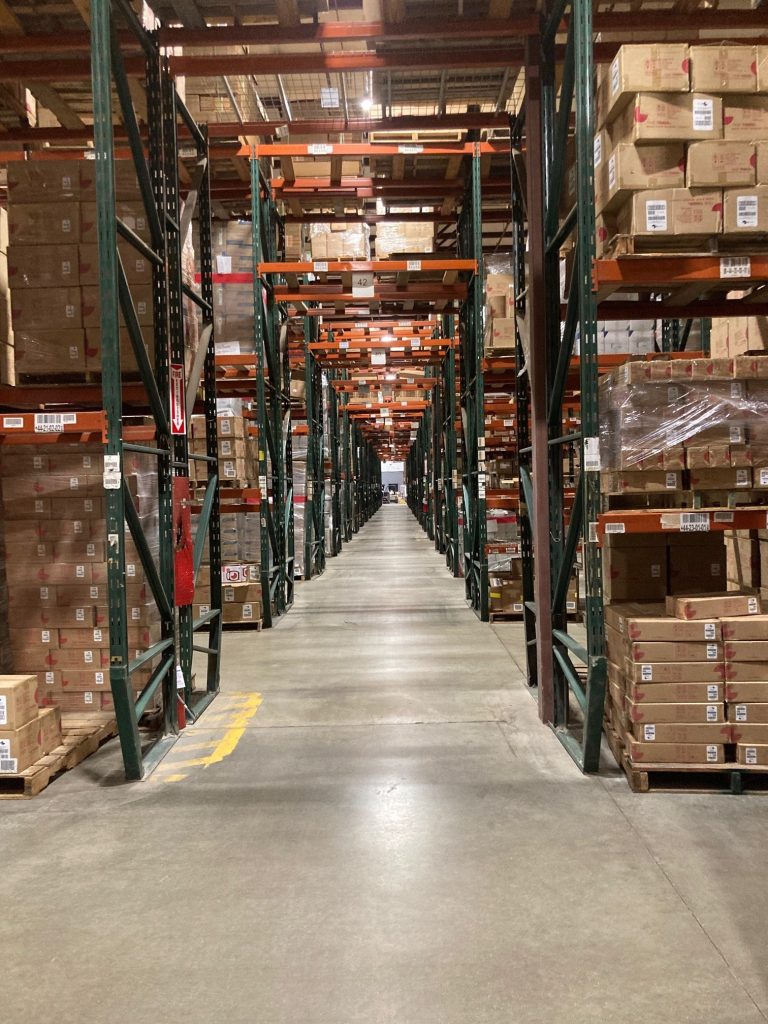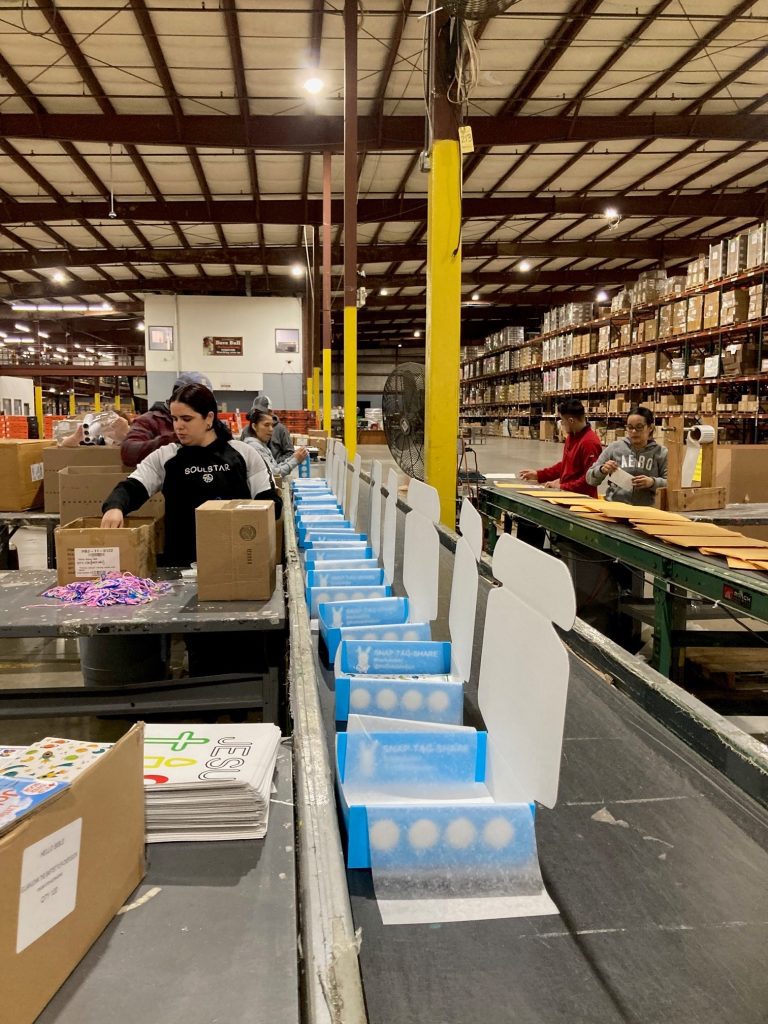Pick and Pack Fulfillment
Pick and Pack fulfillment services is a trusted eCommerce solution that improves inventory control and...
As retailers continue to expand into online sales, a well-managed supply chain is critical for success. Brands that understand the complexities of eCommerce supply chain management and optimize their fulfillment operations have a strong advantage over their competitors.
Key Takeaways
2022 was yet another record-breaking year for U.S. eCommerce fulfillment. For the first time, sales surpassed the $1 trillion mark. Recent data on eCommerce sales by category shows these are the top-selling products online:
Along with the year-over-year growth in these categories comes the heightened competition that brands face in the eCommerce space and the need to deliver a great buying experience, including getting customer orders delivered accurately and on time.
While most brands have an eCommerce supply chain strategy, growth always brings challenges. The most common fulfillment pitfalls include inventory management issues, slower order turn, increased shipping costs, and product returns.
Third-party fulfillment by an experienced 3PL fulfillment company can help brands minimize their eCommerce supply chain challenges and optimize the order processing experience for their customers.
In this article, we’ll show you nine ways 3PLs can help with eCommerce supply chain management, but first let’s take a look at the role of supply chain management and some of the challenges brands face with eCommerce order fulfillment.
Consumers are increasingly turning to eCommerce platforms to fulfill their shopping needs. This shift in buying habits has created the need for brands to develop cost-effective and efficient supply chain management solutions to meet the rising demand.
The supply chain encompasses the entire process from procurement to delivery.
It includes everything from sourcing materials to manufacturing, warehousing, inventory management, and transportation. The management of this complex system is crucial to ensure that the right products are available at the right time, in the right quantities, and at the right price.
Brands that have an efficient and optimized supply chain can benefit from reduced waste, optimal inventory levels, and overall cost savings. In contrast, brands that struggle to keep their supply chain running smoothly often suffer increased costs, shipping delays, out of stock issues, and a potential loss of customers due to a poor brand experience.
To avoid fulfillment interruptions, brands need to develop a proactive supply chain management solution to guard against the challenges and pitfalls they may encounter.
Online retailers face many challenges when it comes to maintaining an efficient supply chain. There are three main obstacles they have to overcome to ensure a smooth customer experience.
There are multiple reasons for fluctuation in product demand. Seasonality, sales, and increased market awareness are a few drivers of this variation in purchasing patterns. Retailers making decisions based on data driven forecasts can avoid overstocking or understocking their inventory.
Customer expectations for fast shipping, easy returns, and accurate fulfillment are increasing all the time. Choosing the right fulfillment partner that can keep up with these demands is a vital component in successful supply chain management.
Retailers that do not have a well established supplier network can face serious revenue loss in the event of global supply chain disruption. Brands that proactively monitor global trends and develop contingency plans are far less affected.

Now that we’ve taken a look at the role of the supply chain in eCommerce and some of the challenges retailers face, here are nine strategies for optimizing your supply chain management.
Warehouse and inventory management are critical aspects of fulfillment operations. Keeping products stocked and moving steadily in and out of your warehouse is crucial to efficient order processing and shipping, but it’s not always easy to maintain.
A 3PL fulfillment company has warehouse and inventory management capabilities that enable you to move your in-house warehousing to a third party that can scale inventory capacity up or down as needed.
Receiving and stocking protocols are also optimized using 3PL’s warehouse management systems that verify counts, check for product damage, provide real-time in-stock quantities, and strategically stock products in their warehouse to maximize fulfillment speed and accuracy.

Many 3PLs offer an omnichannel fulfillment solution that helps streamline and optimize a brand’s purchasing and delivery process. It’s a model that integrates into multiple fulfillment methods and sales channels. It allows a product to be sold online through a website, on other large-scale online marketplaces, or at a physical storefront.
Omnichannel fulfillment allows all the heavy lifting to be completed via third-party logistics. This approach provides comprehensive reporting and will enable businesses to scale their inventory and delivery methods to match customer and industry needs.
Brands continue to elevate their product packaging game to offer a memorable unboxing experience for customers – and many 3PLs have the resources to create that unique experience.
Subscription box services are popular among specific markets and demographics and are a great way to deliver quality products to customers on a recurring basis.
There are different subscription models to consider, including curated boxes that change with every shipping cycle, the replenishment model in which the same products are shipped on a regular schedule determined by the customer, and access boxes, which are typical “VIP” offers that come with exclusive deals for add-on purchases. Whichever option is best for you, a 3PL can manage the process from start to finish.
Kitting and co-packing are other 3PL eCommerce fulfillment services that can help elevate a brand experience. It allows brands to package products together that may have otherwise been purchased separately.
These services increase operational efficiency and give brands greater flexibility to increase sales through cross-promotion, bundle sets, or surprise boxes. And, of course, packaging products together also provides the benefit of selling more products with fewer packaging materials and fewer shipments – leading to cost savings.
Data has become a significant challenge for brands managing their eCommerce supply chain. Another advantage that 3PLs offer in terms of data is that many have the advanced technology and software critical to data capture at each transaction in the fulfillment process.
At Kable, for example, our client-facing tech platforms offer a comprehensive view of operational data in real-time, 24 hours a day. There’s transparency and client access to several key data points – orders, inventory status, receipts or POs, returns, SLA & KPI reports, and more.
Closely connected to a 3PL’s technology and software are their eCommerce channel integrations. They improve order visibility and allow brands to take a hands-off approach to order fulfillment and see all the moving parts of their logistics 24/7/365.
Having the benefit of improved order visibility also provides insights on how to best scale your business based on order data.
Nothing makes a customer happier than receiving an online purchase faster than expected. 3PLs typically have centralized warehouses, making it possible to have one- to two-day delivery to most of the zip codes in the contiguous U.S.
The best 3PLs for eCommerce also can rate shop with the leading carriers to ensure they obtain the most cost-effective shipping methods on the orders they fulfill.
Product returns are inevitable, and industry reports indicate that over 20% of online items will be returned (and that number continues to grow).
When brands process their returns in-house, they use lots of resources and time that they can reallocate to other parts of their business. The good news is that 3PLs are experts in returns processing, and they can be a significant asset for this necessary fulfillment process which often becomes inefficient when managed in-house.

Returns are a vital part of the eCommerce supply chain management process. It involves receiving, repairing, refurbishing, exchanging, and restocking products. Using a 3PL for your fulfillment services means you have an expert that can expedite the returns process, make it more efficient at all stages, and save you money.
3PLs are designed to be flexible and scalable – from their warehousing capabilities to their shipping operations. Scalability is a big asset for brands experiencing significant growth or having seasonal product demand.
Another advantage when working with an experienced 3PL is that they remain focused on continuous improvement for the benefit of their customers – such as investing in new technology platforms that will optimize their operations even more. That continuing investment into their fulfillment solutions only brings greater scalability to the brands they work with.
3PL infrastructure is all about efficiency. Their industry knowledge, advanced technologies, standard operating procedures, and trained fulfillment teams lead to greater cost savings for the brands that trust their eCommerce supply chain management to a reputable 3PL.
Our team is here to answer your fulfillment questions and help you take the next step in optimizing your eCommerce supply chain! Contact us to start the conversation.
Pick and Pack Fulfillment
Pick and Pack fulfillment services is a trusted eCommerce solution that improves inventory control and...
The Importance of Efficient Warehousing in eCommerce Success
Efficient warehousing plays a crucial role in the overall success of eCommerce businesses. When customers...
3PL Fulfillment
Businesses require efficient logistics and 3PL fulfillment solutions to remain competitive. Inventory management, order processing,...
Omnichannel Fulfillment
In the competitive landscape of eCommerce sales, businesses must recognize and react to the fact...
eCommerce Fulfillment
The pace of shipping eCommerce products significantly contributes to customer satisfaction, loyalty rates, and business...
Subscription Box Fulfillment Services
Using the subscription box fulfillment model is a great way to deliver quality products to...
Retail & B2B Fulfillment
Modern market competition success depends heavily on efficient B2B fulfillment operations for successful retail brands....
Warehousing Fulfillment
Grasping the essentials of warehouse fulfillment services is a crucial first step for businesses aiming...
Product Fulfillment
Product fulfillment services are a cornerstone of e-commerce, managing the end-to-end process from storage to...
Order Fulfillment
The gap between the success and struggle of your business operations frequently rests on the...
Returns Processing Fulfillment
Returning goods to an online merchant is often irritating to customers, and it can be...
Amazon Fulfillment
Amazon Seller Shipping Options Amazon sellers have access to one of the fastest growing online...
Kitting, Co-Packing, Pick & Pack Fulfillment
Kitting and fulfilment services are among the most commonly used services in eCommerce fulfillment. Kitting refers...